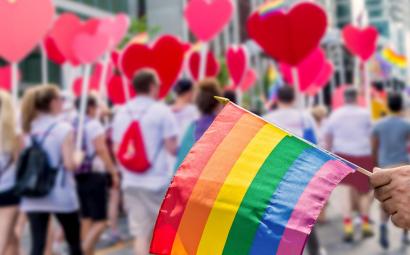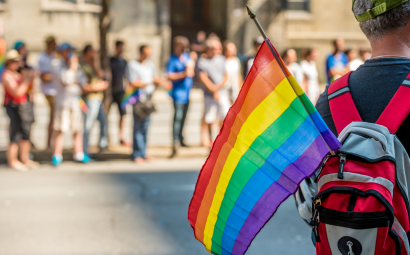International cities form Rainbow Cities Network
Rainbow Cities is a network of international cities concerned with LGBTI policies. The network is based on a Dutch cities network with an LGBTI policy, in which 43 Dutch cities now participate. The Rainbow Cities aim to exchange their experiences with LGBTI policies and share their do's and dont's, so that they can learn from each other and don’t have to start from scratch. Cities from all over Europe with an active local LGBTI policy can join in the exchange of expertise and experience.
In 2013 the European Union Agency for Fundamental Rights (FRA) presented the results of a study in which 92.000 LGBTI citizens from all over Europe participated. The figures paint a bleak picture. Two third of European respondents hid the fact they’re LGBTI while at school. Over 60% had been confronted with negative comments or harassments. 19% felt discriminated at work or when applying for a job. 26% of LGBTI respondents had been attacked or threatened during the last five years. 66% of them – even 75% of gay and bisexual men – are afraid to walk in the street hand in hand with a same sex partner. Surveys held in the Rainbow Cities also show the need to continue the LGBTI inclusive approach on a local and regional level.
Congress of Local and Regional Authorities
In 2015 the Council of Europe’s Congress of Local and Regional Authorities adopted a resolution on guaranteeing LGBTI people’s rights and defined it as a responsibility for Europe’s towns and regions. The corresponding report describes the discrimination and challenges faced by LGBTI people, and makes policy recommendations that will remove the obstacles to promoting respect of LGBTI people’s human rights, based on examples of good practice and strategies with proven success. The report stresses that protecting and promoting human rights is a responsibility shared by all different tiers of authority. However, because of the close relationship between citizens and their elected representatives at these levels, local and regional bodies are best placed to analyse the human rights situation, identify the relevant problems which arise and take action to solve them. Local and regional levels are decisive in combating discrimination and advancing equality and it is the paramount duty of these authorities to positively protect the rights of all citizens.
Dutch network exchanges local LGBTI policy
Movisie has been commissioned by the Dutch Ministry of Education, Culture and Science to set up and coordinate this network. Movisie also encourages exchange between Dutch cities with an LGBTI policy and their international counterparts. The Dutch project started in 2008 with 18 participating cities and now has, in total, 43 Dutch cities which are supported by Movisie to develop local policies to improve the safety of LGBTI citizens and contribute to social acceptation of sexual diversity. Download the Dutch one pagers on LGBTI policies.
For more information go to www.rainbowcities.com and subscribe to the Rainbow Cities newsletter.




